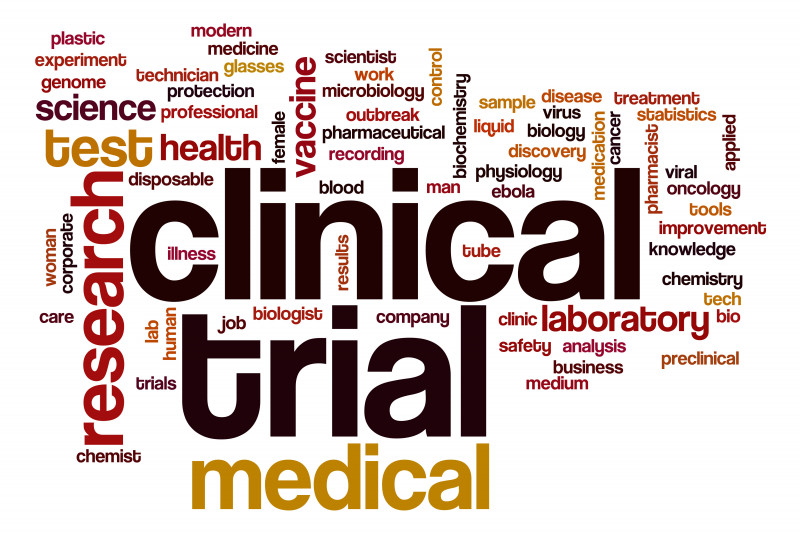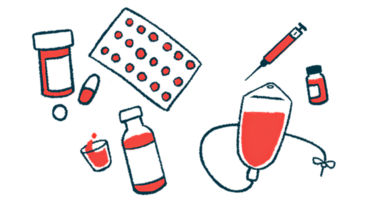Ultomiris Helps Ease gMG Symptoms in Ongoing Phase 3 Trial

ibreakstock/Shutterstock
Ultomiris (ravulizumab-cwvz) rapidly and sustainably eased symptom severity in adults with generalized myasthenia gravis (gMG), according to top-line data from a Phase 3 trial.
Alexion Pharmaceuticals, the therapy’s developer, now plans to submit regulatory applications requesting approval of Ultomiris for gMG in the U.S., Europe, and Japan, later this year and/or in early 2022.
“These data provide confidence that Ultomiris has the potential to become the new standard of care for gMG,” John Orloff, MD, executive vice president and head of research and development at Alexion, said in a press release.
“We are working to prepare regulatory submissions in the U.S., EU and Japan as quickly as possible,” he added.
Ultomiris is a monoclonal antibody designed to reduce the powerful inflammatory response produced by the complement cascade, a branch of the immune system that is thought to be implicated in gMG.
The medication is currently approved in the U.S., Europe, and other regions for the treatment of atypical hemolytic uremic syndrome (aHUS) and paroxysmal nocturnal hemoglobinuria (PNH), two rare diseases in which the overactivation of the complement system results in the excessive destruction of red blood cells.
“These Phase 3 Ultomiris results reinforce the critical role complement inhibition plays in treating gMG,” said James F. Howard, MD, the trial’s primary investigator. “I am encouraged by the opportunity this could provide for more patients to be treated early with a mechanism of action designed to preserve neuromuscular function.”
The Phase 3 study (NCT03920293) is evaluating the safety and efficacy of Ultomiris in 175 adults with gMG who had not previously been treated with complement system inhibitors.
Following enrollment, patients were randomly assigned to receive Ultomiris or a placebo for 26 weeks (approximately six months). After that, participants had the option to enroll in an open-label extension study, which is ongoing, to continue receiving Ultomiris for up to two years.
The study’s main goal was to measure changes in the MG Activities of Daily Living (MG-ADL), a validated patient-reported measure of MG severity, from the study’s start to week 26.
Secondary goals included assessing changes in the Quantitative MG (QMG), a clinician-administered assessment of disease severity, and in the Revised 15 Component MG Quality of Life, a quality of life measure. The proportion of patients experiencing an improvement (decline) of at least three points in the MG-ADL score and of at least five points in the QMG score was also evaluated at week 26.
The study met its primary goal, with patients treated with Ultomiris experiencing a statistically significant improvement in MG-ADL scores compared with those given a placebo from the study’s start to week 26. Statistically significant improvements in QMG scores were also seen in Ultomiris-treated patients over the same period.
Improvements in MG-ADL and QMG scores were observed as early as week 1 and sustained to week 26.
These positive effects were maintained through an additional 26 weeks in patients originally assigned to Ultomiris who continued in the open-label extension study, amounting to a sustained, year-long improvement. Rapid and sustained improvements in MG-ADL scores were also seen in patients originally given a placebo who switched to Ultomiris upon entering the open-label extension study.
Moreover, the proportion of patients experiencing an improvement of at least five points in the QMG score was nearly three times higher in those treated with Ultomiris compared with those given a placebo (30.0% vs 11.3%).
No statistically significant differences were seen in other secondary measures between patients treated with Ultomiris and those given a placebo.
Ultomiris also appeared to be safe and well-tolerated, with a safety profile consistent with that observed in other Phase 3 trials enrolling patients with PNH and aHUS.
Adverse side effects were comparable between patients treated with Ultomiris and those who received a placebo. The most common side effects were headache (18.6% for Ultomiris vs. 25.8% for placebo), diarrhea (15.1% vs. 12.4%), and nausea (10.5% vs. 10.1%). The most frequently-observed serious adverse events were MG crisis (1.2% among those treated with Ultomiris) and MG worsening (3.4% among those in the placebo group).
Four deaths occurred in the Ultomiris-treated group over the course of one year of follow-up. Three were due to COVID-19, and none was deemed to be treatment-related.
Ultomiris is the second complement cascade antibody developed by Alexion. The company also developed Soliris (eculizumab), which is currently approved for the treatment of certain gMG patients in the U.S., Europe, and Japan.
“The approval of Soliris was a critically important first step in addressing the urgent need for a treatment for people with severe symptoms and complications of MG, and was the first new treatment for this devastating disease in more than 60 years,” said Orloff.
“Today’s results demonstrate that Ultomiris may help a broader range of patients … including those with milder symptoms or earlier in their treatment journey, while still offering clinically meaningful benefits that were seen as early as Week 1 and maintained up to 52 weeks,” he added.








